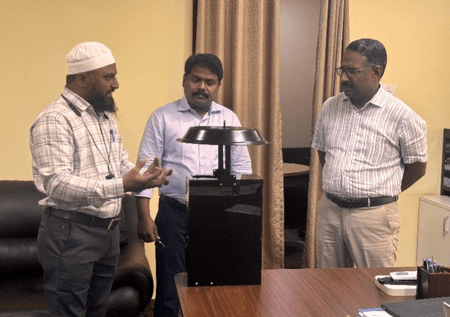
Andhra Pradesh Launches AI-Powered “Smart Mosquito Control” Program
Is Andhra Pradesh about to win the fight against vector-borne diseases? A new AI-driven system aims to revolutionize mosquito control across six major cities.
Tackling Vector-Borne Diseases with Deep Technology
Andhra Pradesh’s Municipal Administration and Urban Development Department is launching a focused “smart mosquito control” program using cutting-edge technology to combat the spread of vector-borne diseases. The Artificial Intelligence-powered Smart Mosquito Surveillance System (SMoSS) will initially be piloted at 66 locations across six municipal corporations: Visakhapatnam, Vijayawada, Kakinada, Rajamahendravaram, Nellore, and Kurnool.
The program seeks to not only improve public health by curbing the mosquito menace but also reduce operational burdens and costs for Urban Local Bodies.
How SMoSS Works: A Deep Dive
SMoSS utilizes a combination of technologies to achieve precise and efficient mosquito control:
- AI-Powered Sensors: Smart sensors will be strategically placed in mosquito-prone zones to identify mosquito species, gender, population density, temperature, and humidity.
- Real-Time Data & Alerts: When mosquito density exceeds a predetermined threshold, the system will automatically generate alerts.
- Centralized Monitoring Dashboard: Data collected will be streamed to a central server and visualized on a real-time dashboard, enabling close monitoring and prompt action.
- Targeted Fumigation: This data-driven approach replaces traditional, often ineffective, “blind spraying” with precise fumigation in affected areas.
- Drone Technology: Drones will be employed for efficient larvicide spraying, covering larger areas with reduced chemical use, time, and cost.
- IoT Integration: The Internet of Things (IoT) will monitor mosquito density and guide targeted activities.
Improving Efficiency and Accountability
The Andhra Pradesh government plans to outsource operations to specialized agencies with a result-oriented payment structure, ensuring operational accountability. Citizen complaints and field-level reports will be tracked via mobile applications (Vector Control and Puramitra). Daily reporting on cases of malaria, dengue, and chikungunya will further inform data-driven action plans.
Special action plans are being developed for scheduled fogging and larval treatment in identified hotspots. This holistic approach prioritizes evidence-based spraying, prevention of chemical overuse, and public health safety.
Key Takeaways
- Andhra Pradesh is pioneering a new approach to mosquito control with its AI-powered SMoSS program.
- The system leverages IoT sensors, drones, and real-time data analysis for targeted intervention.
- SMoSS aims to reduce disease spread, lower operational costs, and improve public health outcomes.
- The pilot program will be crucial in evaluating the effectiveness of the system and scaling it across the state.
- This initiative represents a significant step towards smarter, more sustainable public health solutions.
